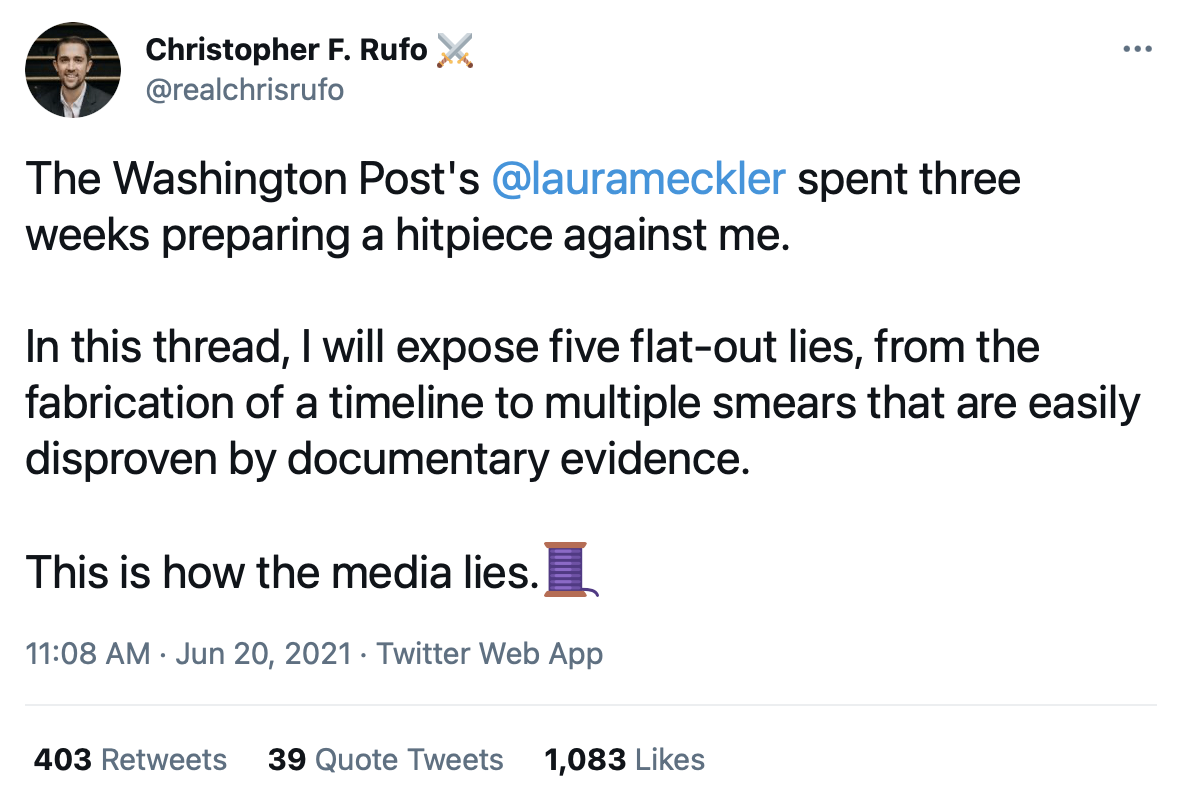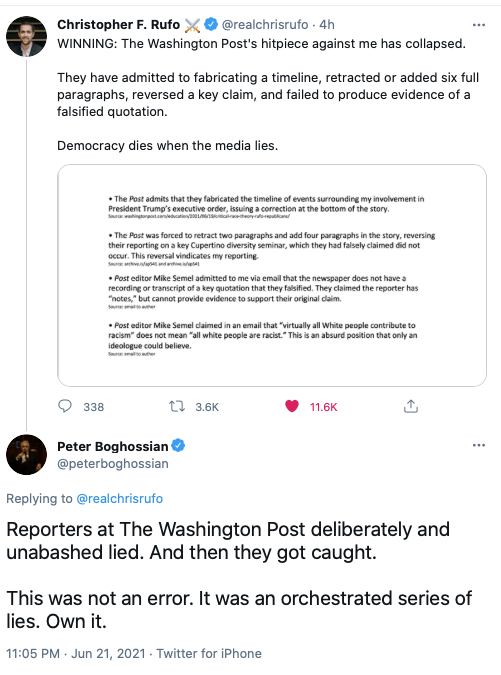Andrew Sullivan describes the situation and the pathetic spineless nebulous apology by the Editor of journal of the American Medical Association. I invite you to visit (and support) Sullivan's excellent substack website, "The Weekly Dish," for the full article and a steady stream of excellent writing by Andrew Sullivan. Here's an excerpt regarding the AMA Editor. This is who we are becoming:
I was just reading about the panic that occurred in the American Medical Association, when their journal’s deputy editor argued on a podcast that socio-economic factors were more significant in poor outcomes for non-whites than “structural racism.” As you might imagine, any kind of questioning of this orthodoxy required the defenestration of the deputy editor and the resignation of the editor-in-chief. The episode was withdrawn from public viewing, and the top editor replaced it with a Maoist apology/confession before he accepted his own fate.
But I was most struck by the statement put out in response by a group called “The Institute for Antiracism in Medicine.” Here it is:
The podcast and associated promotional message are extremely problematic for minoritized members of our medical community. Racism was created with intention and must therefore be undone with intention. Structural racism has deeply permeated the field of medicine and must be actively dissolved through proper antiracist education and purposeful equitable policy creation. The delivery of messages suggesting that racism is non-existent and therefore non-problematic within the medical field is harmful to both our underrepresented minoritized physicians and the marginalized communities served in this country.
Consider the language for a moment. I don’t want to single out this group — they are merely representative of countless others, all engaged in the recitation of certain doctrines, and I just want an example. But I do want to say that this paragraph is effectively dead, drained of almost any meaning, nailed to the perch of pious pabulum. It is prose, in Orwell’s words, that “consists less and less of words chosen for the sake of their meaning, and more and more of phrases tacked together like the sections of a prefabricated hen-house.” It is chock-full of long, compounded nouns and adjectives, riddled with the passive voice, lurching and leaning, like a passenger walking the aisle on a moving train, on pre-packaged phrases to keep itself going.
Notice the unnecessary longevity: a tweet becomes an “associated promotional message.” Notice the deadness of the neologisms: “minoritized”, “marginalized”, “non-problematic”. As Orwell noted: “the normal way of coining a new word is to use a Latin or Greek root with the appropriate affix and, where necessary, the -ize formation. It is often easier to make up words of this kind (deregionalize, impermissible, extramarital, non-fragmentatory and so forth) than to think up the English words that will cover one’s meaning.” Go back and see if you can put the words “minoritized” or “non-problematic” into everyday English.
Part of the goal of this is political, of course. The more you repeat words like “proper antiracist education” or “systemic racism” or “racial inequity” or “lived experience” or “heteronormativity,” the more they become part of the landscape of words, designed to dull one’s curiosity about what on earth any of them can possible mean. A mass of ideological abstractions, in Orwell’s words, “falls upon the facts like soft snow, blurring the outlines and covering up all the details.”
In modern America, this is how easy it is to get intelligent people in high places to stop saying what they are thinking. You have probably wondered, like I have, why the German people didn't rise up to overthrow Hitler. Now think about what is happening today in the United States. People are not being sought out and killed. Their relatives are not being threatened with death. They are not being thrown into education camps. They are merely being threatened with social disapproval and economic loss. But they are so terrified, their assholes so incredibly puckered, that they are refusing to ask obvious questions and to say obvious things. Highly trained medical professionals are afraid to stand up and acknowledge the obvious need to conduct multivariate analyses to understand complex situations. They are willing to look in their mirrors in the morning knowing that they are living and speaking lies. That's how powerful and perverted the Woke Movement is. That is why I have a difficult time walking away from this topic.
Wokeness (including the modern version of CRT) is clearly a religion (as John McWhorter argues). I've been through this kind of thing all my life, given that I am both an agnostic and an atheist. I've seen the Overton window closing on me. I've seen the disappointment in others as I ask obvious questions and acknowledge obvious things around me. This is giving me something like PTSD, bringing me back to the days when my well-meaning father worked overtime to jam overly-pious Catholicism down my throat. I've been there, seen this, and don't know what to do about it, given that those who are captive have done the equivalent of constructing "electric fences" around numerous critically important topics in their minds, thereby nullifying the possibility that we can move forward by using Enlightenment Principles. Too many of us can't (or won't) talk anymore, even about the Emperor's state of undress.


